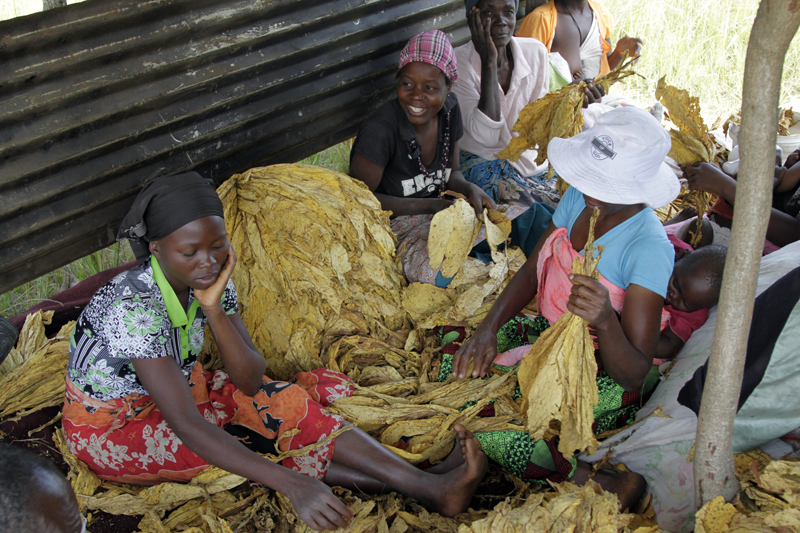
ALL roads today lead to Marondera for celebrations to mark International Women’s Day hosted by Women’s University in Africa (WUA) which falls on March 8 worldwide.
Ropafadzo Mapimhidze
It is most befitting that this private university is celebrating this day for it represents emancipation and empowerment of women in Zimbabwe.
I remember being the first journalist to write about establishment of this university many years ago, which generated a lot of debate as to whether this would be a success.
But when the story began unfolding, reality set in and today WUA is one of Zimbabwe’s leading universities that churns out quality graduates who are relevant and/or who address the special skills vacuum as demanded by the nation.
Co-founders of this progressive institution, Professor Cynthia Hope Sadza and Dr Fay Chung, managed to raise this institution from nothing to something which is now a formidable force in Africa.
The university enrolls 85% female and 15% male students.
The university offers wide ranging subjects and notably programmes in faculties of agriculture, ICT, social sciences and business.
- Chamisa under fire over US$120K donation
- Mavhunga puts DeMbare into Chibuku quarterfinals
- Pension funds bet on Cabora Bassa oilfields
- Councils defy govt fire tender directive
Keep Reading
Among some of the notables who have been through WUA include Air Force of Zimbabwe Commander, Air Marshal Perence Shiri and businesswoman Kubi Indi.
Former Vice-President Dr Joice Mujuru, is also a former student of the university who instantly became an inspiration to other women that had failed to proceed to university for various reasons.
This is a university that gives any women, particularly the mature, to explore an education they were denied due to patriarchy that generally favoured the male child.
However, the most interesting thing about this university is that it has brought the common woman to its classes, with some obtaining scholarships from the donor world.
Although the university faces many challenges, the biggest being the lack of infrastructure, there are plans to build a fully-fledged institution in Marondera, where the International Women’s Day celebrations will be held.
Interestingly, WUA has started a programme called The University Entering the Rural Areas, which provides people with knowledge in their own localities.
When the university enters a rural area, it asks people what their needs are, in line with a policy to undertake needs assessments in order to introduce courses that are relevant, for example such as a three-week course on growing tomatoes.
This is aimed at bringing the university to the ordinary person.
Saudi Arabia is also one of the few countries in the world that has opened a university targeting women in a major move to boost women’s higher education in the Kingdom.
The university campus, spreading over eight million square meters (26 million feet), will host up to 50,000 students in its 15 departments.
It is also planned to be a car-free environment, operating a shuttle monorail train and electric buggies for internal transport, while solar panels stretched on the campus will reportedly generate 18 percent of the power needed for air-conditioning.
The campus also boasts a 700-bed hospital and accommodation facilities that could lodge 12,000 students.
The new campus is considered the largest women-only university in the world which was completed in a record time of three years on instructions of King Abdullah, the ruler of this country.
Such initiatives will ensure that more women aspire and realise their dreams and become useful persons in their economies.
Zimbabwe is no doubt an excellent example of a country that aims to empower women through education, and hence rates one of the highest in terms of literacy in Africa.
However, as change brought about by technological, scientific and economic advancements, globalisation and migration are transforming Africa’s university environment, it has become more dynamic and complex than ever before.
Increasingly, gender-balanced human resource development is key to ensuring that higher education institutions at national and continental levels meet the challenges emerging from these transformations.
Universities in Africa are, therefore, compelled to develop, sustain and nurture not just men, but equally women who are capable of generating the types of knowledge and competencies that will lead Africa into a new era.
This would be in line with universal agreements on equal access to opportunities and outcomes, such as the African Union’s Protocol to the African Charter on Human and Peoples’ Rights on the Rights of Women in Africa (2003) and the Convention on the Elimination of All Forms of Discrimination Against Women (CEDAW) as well as Millennium Development Goal 3 (MDG 3), which relates to women’s empowerment and gender equality at all levels of the education system by 2015.
The Beijing Platform for Action listed priority action areas vital to ensuring that women are empowered to contribute fully and meaningfully to social and economic development processes.
Women’s participation in decision-making in all sectors was amongst these priorities.
Yet universities in Africa continue to be male-dominated and women, especially those from socially and economically disadvantaged backgrounds, have a very low presence in these institutions.
A number of studies in the early part of the century showed this situation quite clearly.
For example, in 90% of African universities, the majority of members of senior management in 2005 were men, even in institutions where 50% of the staff were women, such as in the case of Lesotho (UNESCO, 2005).
Out of 17 Commonwealth African countries sampled in 2002, only seven had over 20 per cent women academic staff at senior lecturer level and above in their universities (Singh, 2002).
And the University of London’s Institute of Education (2005) found that in four Commonwealth universities (Cape Town, Dar es Salaam, Ibadan and Makerere) the percentage of women at professor, associate professor and senior lecturer level was decidedly lower than the percentage of men.
Professor Sadza and Dr Chung and many others in different sectors of the economy should be applauded for being the hallmark of women’s emancipation in Zimbabwe.
Feedback:[email protected]











